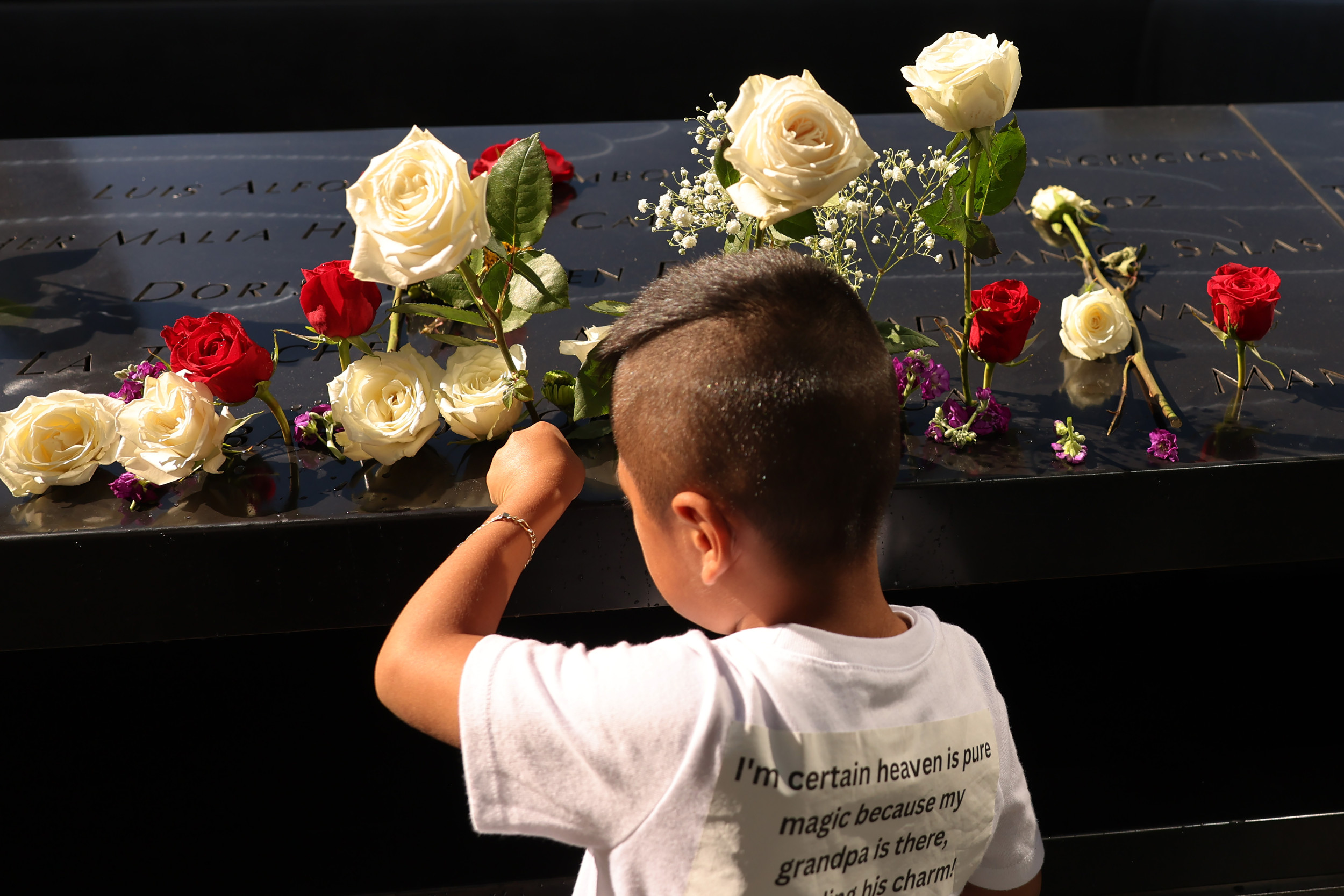
I was 1 year old on September 11, 2001. I was 11 when former President Barack Obama announced that Navy SEALs had killed Osama bin-Laden. And I was 25 when I spent a week at Guantánamo Bay attending military court hearings for Khalid Sheikh Mohammed and his alleged co-conspirators in the 9/11 attacks. I remember the third event vividly—it was just a few months ago. I remember the second one vaguely. And the first? I don’t remember it at all.
Every Sept. 11, people post about that fateful day on social media, often using the phrase “Never Forget.” But how am I supposed to never forget what I don’t remember?
I went to Guantánamo with eight other law students, and none of us were old enough to remember 9/11. Those at Camp Justice recognized that too. I quickly picked up on the attitude—through offhand remarks or subtle indifference—that we Gen Zers didn’t get it. We were too young to remember 9/11, so we couldn’t truly appreciate what it meant to sit in that courtroom and witness the alleged masterminds of the attacks. And they were somewhat right. It is significantly easier to remember a lived experience over a secondhand report. I don’t fully understand what it was like for Americans who watched the horror unfold in real time—because I wasn’t there. Seeing Khalid Sheikh Mohammed in the flesh was a surreal experience. But I’m sure I didn’t feel it as deeply as those who lived through 9/11, including the victims’ families—those who can truly never forget.
Michael M. Santiago/Getty Images
We all know the familiar saying: “Those who cannot remember the past are condemned to repeat it.” It’s worth unpacking what this quote actually means. It’s not enough to learn about history; we need to remember it. Most Americans were not alive or were very young during the Holocaust, and now more people than ever dispute that it ever happened, even though it is commonly taught in K-12 classrooms. And if we don’t remember the past, we lose the ability to never forget, and we risk repeating history. Most Americans learned about, but don’t remember, the 1929 Stock Market crash and the ensuing Great Depression. Similarly, in 2008, market speculation and overconfidence led to the Great Recession. Could this event and others be history repeating itself? And is our historical amnesia the reason why?
We need to remember—not just learn—if we want to stop history from repeating itself. Psychological evidence shows that we can still remember what we didn’t physically experience through collective memory. Society passes down memories of events, allowing the receiver to “remember” the historical events. The main issue with collective memory is that memories are often reconstructed when passed down. Since collective memory is the only way for people to remember an event that they did not physically experience, it’s essential—not just for remembering history, but stopping it from repeating.
How can we ensure that history doesn’t repeat itself despite these barriers to remembering? I propose that we can start solving this problem by strengthening collective memory in primary education. Here are two concrete ways to do so.
—Increase digital immersion in history classes. The National WWII Museum uses AI to allow visitors to “ask” survivors questions and hear their testimonies, which gives participants a firsthand experience with history. Teachers could follow suit and create immersive experiences for their students through AI and other firsthand accounts in history classes, allowing students to hear directly from those who lived through major events.
—Teach media literacy in public schools. Like AI, social media is a powerful storyteller—but is also one of the largest sources of false news, eroding collective memory. As such, the rising generation needs tools to counter misinformation. The U.S. education system should consider incorporating media literacy as part of the curriculum for history and English classes. In Finland, media literacy is part of the national core curriculum, starting in preschool. Finland’s teachers implement the program in creative ways. One teacher taught her students how search algorithms work and why the first results might not be reliable; another teacher had students edit their own media to show how easy it is to manipulate information. This curriculum works—Finland consistently ranks at the top of the Media Literacy Index, which measures 47 countries’ resilience to misinformation.
We can teach facts from history books, but nothing replaces the impact of real stories. For me, history became memory in Guantánamo Bay, where I sat face-to-face with the legacy of 9/11—terrorist attacks I didn’t live through but now feel deeply connected to. Teaching the rising generation to remember history through others’ experiences will strengthen our collective memory. It brings the past closer. It makes remembering possible. And remembering is what keeps us from repeating mistakes.
Bonnie Stewart is a law student at BYU Law School. She is originally from Las Vegas, Nev.
The views expressed in this article are the writer’s own.
